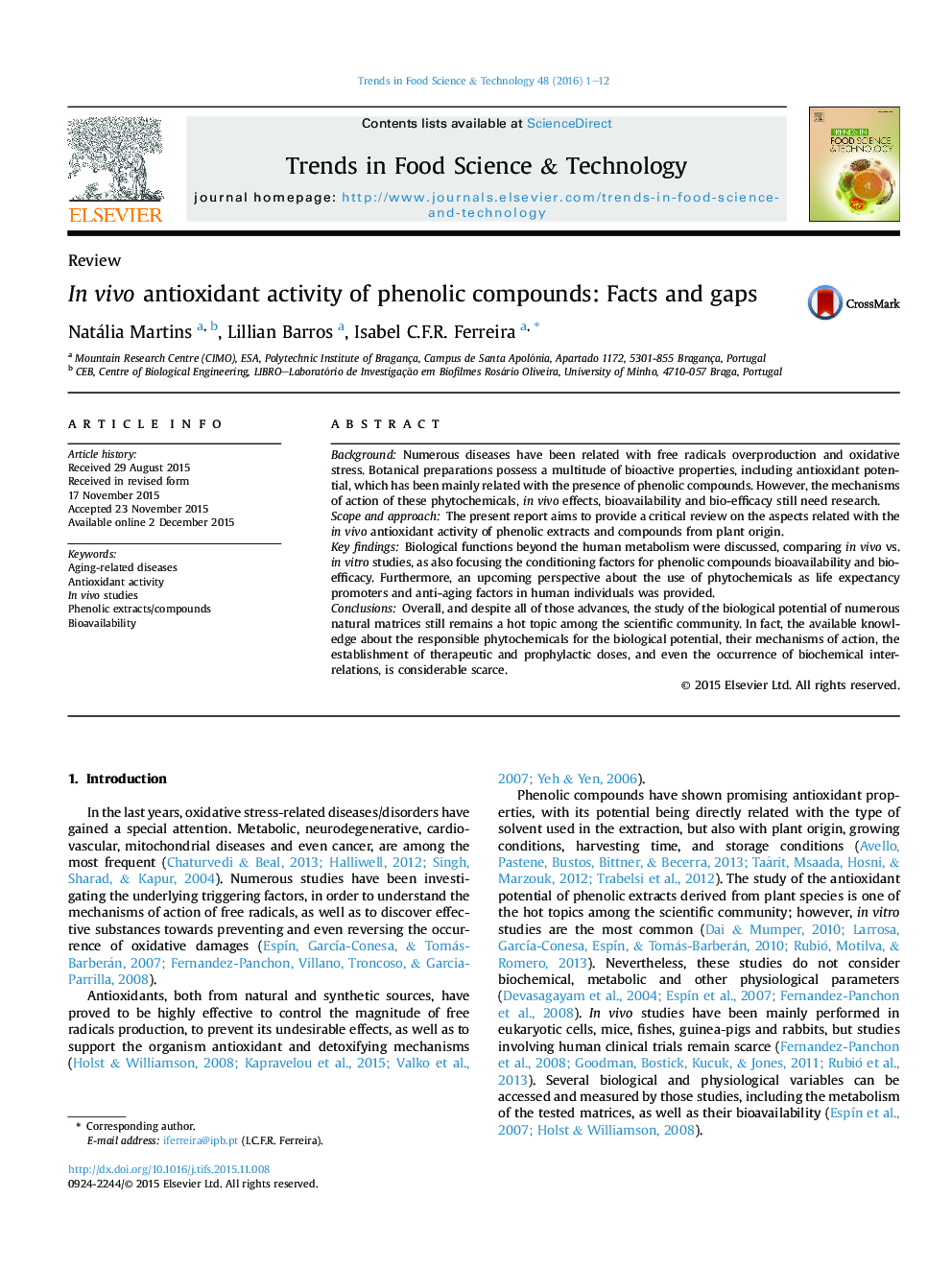| Article ID | Journal | Published Year | Pages | File Type |
|---|---|---|---|---|
| 2098537 | Trends in Food Science & Technology | 2016 | 12 Pages |
•Phytochemicals show promissory effects on oxidative-stress related diseases.•In vivo studies are scarce, particularly clinical trials.•Pronounced differences are achieved through in vivo vs. in vitro studies.•Several factors affects bioavailability and bio-efficacy of phenolic compounds.•New plant-derived formulations could improve longevity and reduce premature aging.
BackgroundNumerous diseases have been related with free radicals overproduction and oxidative stress. Botanical preparations possess a multitude of bioactive properties, including antioxidant potential, which has been mainly related with the presence of phenolic compounds. However, the mechanisms of action of these phytochemicals, in vivo effects, bioavailability and bio-efficacy still need research.Scope and approachThe present report aims to provide a critical review on the aspects related with the in vivo antioxidant activity of phenolic extracts and compounds from plant origin.Key findingsBiological functions beyond the human metabolism were discussed, comparing in vivo vs. in vitro studies, as also focusing the conditioning factors for phenolic compounds bioavailability and bio-efficacy. Furthermore, an upcoming perspective about the use of phytochemicals as life expectancy promoters and anti-aging factors in human individuals was provided.ConclusionsOverall, and despite all of those advances, the study of the biological potential of numerous natural matrices still remains a hot topic among the scientific community. In fact, the available knowledge about the responsible phytochemicals for the biological potential, their mechanisms of action, the establishment of therapeutic and prophylactic doses, and even the occurrence of biochemical inter-relations, is considerable scarce.
